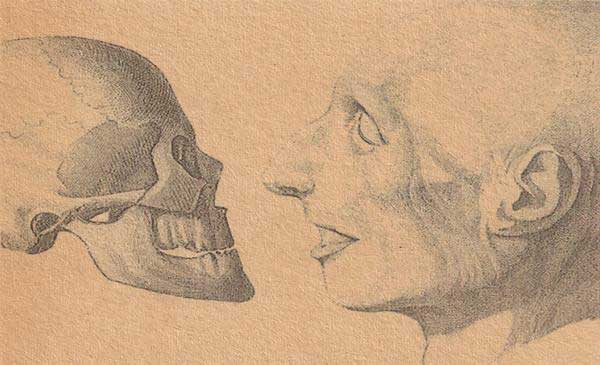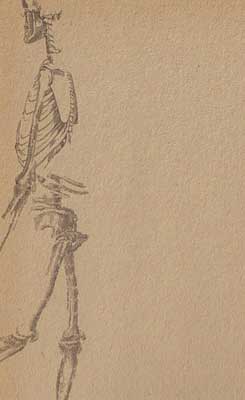
“The question of free will touches nearly everything we care about.1”
The continuous discussion regarding health disproportions worldwide covers various diverse aspects, one of which is the debate between way of life versus social structure; free will and determinism face each other. “I am the keeper of fragile things and I have kept of you what is indissoluble … I AM THE OTHER FACE OF YOU.2”
 The first outlook states that health disparities are a result of assuming individual accountability for one’s health. “Maintaining physical and mental health is crucial to an individual’s longevity. The more time spent on hygiene, physical fitness, and diet regulation, the healthier lifestyle they have.3”
The first outlook states that health disparities are a result of assuming individual accountability for one’s health. “Maintaining physical and mental health is crucial to an individual’s longevity. The more time spent on hygiene, physical fitness, and diet regulation, the healthier lifestyle they have.3”
That is: “We ourselves must walk the path.4”
The second view embraces that health discrepancies are beyond the effects of personal choices and doings but are consequences of social disparity in numerous areas of life: “a difference in which disadvantaged social groups such as the poor, racial/ethnic minorities, women and other groups who have persistently experienced social disadvantage or discrimination systematically experience worse health or greater health risks than most advantaged social groups.5” From this side, the main concerns are health equity, social justice and human rights .6”
 To evaluate the level of responsibility that could be attributed to a person or a collective regarding their health, we have to begin with the premise that everything has specific conditions of existence. Understanding the conditions of existence will prevent the prejudices and perceptions we haven’t revised from prevailing. We need to find out all the aspects that are contributing and propitiating a situation to exist in order to comprehend it. When we strive to know and understand these aspects, we come to acknowledge that there’s a problem with the idea of free will in the sense that it assumes the will and the conscience of an individual to be alienated, to be something different, unconditioned and divorced from the circumstances in which that individual lives, exists.
To evaluate the level of responsibility that could be attributed to a person or a collective regarding their health, we have to begin with the premise that everything has specific conditions of existence. Understanding the conditions of existence will prevent the prejudices and perceptions we haven’t revised from prevailing. We need to find out all the aspects that are contributing and propitiating a situation to exist in order to comprehend it. When we strive to know and understand these aspects, we come to acknowledge that there’s a problem with the idea of free will in the sense that it assumes the will and the conscience of an individual to be alienated, to be something different, unconditioned and divorced from the circumstances in which that individual lives, exists.
When we don’t take the time to research and to study the conditions of existence, we are not doing the groundwork. Groundwork – a solid base where to build our conclusions from – requires thorough study of all the shaping forces that are acting in every individual situation. This approximation is a pluralist one, which seeks enrichment, evidence, and casualty; asking: What allows this to happen? What conditions it? If we do this and analyze our findings, we see that for certain things to occur or not occur there need to be certain social, historical, economic, political … circumstances, specific conditions of existence.
If we think of an individual’s will as one removed, detached, free of his or her conditions of existence, thus concluding – for instance – that the issue of health disparity results only from an individual’s lack of will towards procuring his or her own health – mental and physical – we are forgetting or ignoring that our will depends on our interpretation. And that everyone’s interpretation is always conditioned.
“How do we change mentalities,
how do we reinvent social practices that would give back to humanity
– if it ever had it –
a sense of responsibility, not only for its own survival,
but equally for the future of life on the planet, for animal and vegetable species,
likewise for incorporeal species such as music, the arts, cinema,
the relation with time, love and compassion for others, the feeling of fusion at the heart of the cosmos?
The only acceptable finality of human activity is the production of a subjectivity
that is auto-enriching its relation to the world in a continuous fashion.7”
Links:
1 Free Will. Sam Harris.
2 House of Incest. Anais Nin.
3 https://en.wikipedia.org/wiki/Lifestyle_%28sociology%29#Health
4 Buddha.
5 https://en.wikipedia.org/wiki/Structural_inequality#Healthcare
6 Ann R. Taket Health Equity, Social Justice and Human Rights
7 Felix Guattari. The Three Ecologies.

Tom Dougherty says
The evidence is already in on the Q you’ve raised. Examine the World Health Organizations work on the social determinants of health. Freewill plays a rather minor role. In fact, as evidence, take some imaginary person with the healthiest possible lifestyle. Assume that person is not killed by war, infectious disease beyond the person’s control, murder, or unavoidable accident in odd circumstances (such as being hit by a falling meteorite while exercising in the backyard. Eventually, that person will die. It is inevitable–a result of having been born. Thus, at that point, freewill has nothing to do with continued survival and it is easy to see that all the social determinants of health that affected the person, laid over the person’s genetics, have finally extinguished the person life.